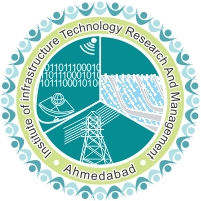Automated insomnia detection using wavelet scattering network technique with single-channel EEG signals
Authors :- Sharma M.; Anand D.; Verma S.; Acharya U.R.
Publication :- Engineering Applications of Artificial Intelligence, Volume 126, Part C, November 2023, 106903, Elsevier.
Sleep is crucial for both the physical and mental well-being of human life. As the sleep pattern varies in every individual, it is essential to develop a methodology that enables us to detect sleep-related disorders precisely. Insomnia is one such disorder that affects humans mentally and physically. Signals from Polysomnograms (PSGs) are typically used to identify different sleep disorders. The PSG signals need a lot of handling time and are not patient-friendly. This work proposes to develop a method to automatically identify insomnia using single-channel Electroencephalogram (EEG) signals. We have employed a Wavelet Scattering Network (WSN), a variant of deep convolutional networks, to extract features effectively WSN is an optimized network capable of learning features that assist in discriminating patterns concealed within signals. In addition, WSNs are insensitive to local disturbances, enhancing the network’s dependability and efficiency. We have used single-channel EEG derivation, C4-A1, to create six separate subsets variants based on the sleep-stage annotations, developing the model individually and collectively for the wake, N1, N2, N3, and Rapid Eye Movement (REM) sleep stages To build the proposed model, 12,576 epochs from the Cyclic Alternating Pattern (CAP) sleep database and 20,523 epochs from the Sleep Disorders Research Center (SDRC) dataset were considered. Our proposed model has attained the highest classification Accuracy (Acc) of 97% and area under the curve (AUC) of 0.98 using a Trilayered Neural Network (TNN) classifier considering the wake-sleep stage of the CAP database. Our devised method is straightforward and computationally efficient. Hence, it could be used for clinical applications.

